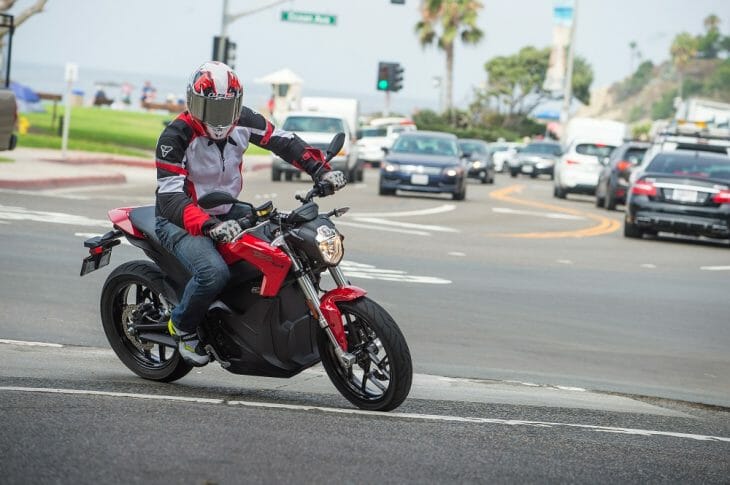Rennie Scaysbrook | September 28, 2017
The Golden State will have a petrol free future, according to Governor Jerry Brown
 The electric future is coming to California, according to the Governor.
The electric future is coming to California, according to the Governor.
The State of California’s love affair with the internal combustion engine looks like it’s on borrowed time, as state officials are currently looking at ways to achieve long-term air quality goals.
According to a report published on Bloomberg and Asphalt and Rubber, California has set a goal of reducing carbon dioxide emissions by 80 percent of 1990 levels by 2050, and part of that goal setting would most likely see a ban of sales of gasoline-powered cars, trucks, and motorcycles.
“To reach the ambitious levels of reduction in greenhouse gas emissions, we have to pretty much replace all combustion with some form of renewable energy by 2040 or 2050,” California Air Resources Board Chairman, Mary Nichols, told Bloomberg. “We’re looking at that as a method of moving this discussion forward.”
The move from California falls into line with what is currently happening in Europe—the Netherlands is aiming to ban the sale of petrol powered vehicles by 2020, Germany will have a gas-free future by 2030, Scotland will fall into line by 2032 and France and the UK by 2040.
Nichols has said the Governor of California, Jerry Brown, wants to see California become a global player after China recently announced it too will be working towards a petrol free future, although no firm date for such a move had been confirmed, with a rumored deadline of 2030.
“I’ve gotten messages from the governor asking, ‘Why haven’t we done something already?’” Nichols said to Bloomberg, referring to China’s planned phase-out of fossil-fuel vehicle sales. “The governor has certainly indicated an interest in why China can do this and not California.”
California has a better leg to stand on regarding a mandated move to electric future than most states. It has the authority to write its own pollution rules, which are underpinned by waivers granted by the Environmental Protection Agency and date back to the 1970 Clean Air Act.
However, Nichols has said California would likely take a different route to enabling a ban rather than use the EPA waiver, as President Trump, a staunch denier of climate change, would likely be unwilling to grant one. One way this could be attained is for the state to go through vehicle registration requirements—basically, the DMV saying you can’t go on the freeway with a petrol-powered car.
“There are people who believe, including who work for me, that you could stop all sales of new internal-combustion cars by 2030. Some people say 2035, some people say 2040,” Nichols said. “It’s awfully hard to predict any of that with precision, but it doesn’t appear to be out of the question.”
Last year, Californian vehicles sales topped more than France, Italy or Spain, so any move by the state to ban fossil-fueled vehicles would need to see serious changes made across all transportation industries for it to become a reality, and that will take a long time. Nevertheless, it does indeed appear that the internal combustion engine’s days are numbered, and it might be sooner than we think.